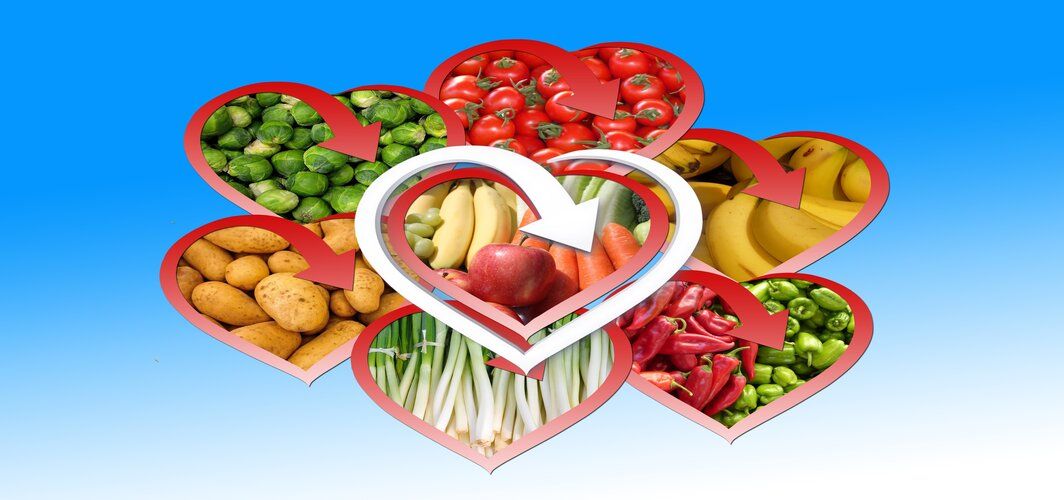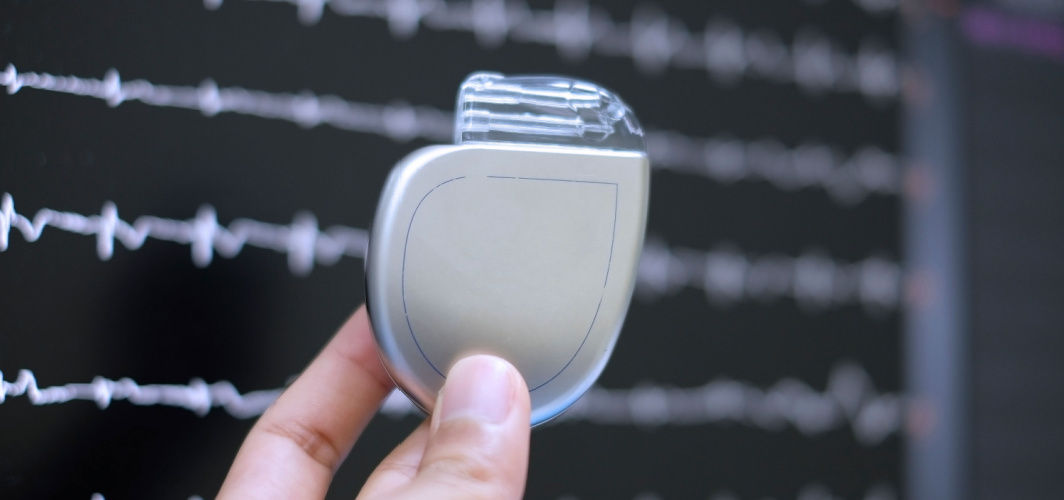Heart Conditions
Ultimate Guide to Reducing Blood Pressure with Diet
7 min read
By Apollo 24|7, Published on - 13 August 2024
Share this article
0
0 like
.jpg?tr=q-80)
High blood pressure, also referred to as hypertension, is an excessive force of blood on artery walls that increases the risk of heart disease, stroke, and other disorders. Regular examinations are essential because hypertension often exhibits no signs. Managing and lowering hypertension can be accomplished by switching to a therapeutic diet. Reducing cholesterol, saturated fats, and salt while increasing whole grains, fruits, vegetables, low-sodium meals, and lean proteins will help you better manage your blood pressure. These dietary adjustments are the cornerstones of optimal blood pressure control, along with consistent exercise, and weight control. A hypertensive diet is beneficial to heart health. Combine these adjustments with regular exercise and stress reduction for general well-being.
This article looks at how some dietary adjustments can enhance your general well-being.
Dietary Tactics to Reduce Hypertension
To effectively manage high blood pressure, you need to combine medication with healthy diet and lifestyle changes. A balanced diet can help lower your blood pressure and bad cholesterol (LDL), reduce the risk of heart attacks and strokes, and improve your overall quality of life. The Dietary Approaches to Stop Hypertension (DASH) diet is great. Here are its primary goals:
- Cut Down on Sodium: Limit your daily sodium intake to 1,500 mg or less.
- Eat More Fresh Vegetables: Include lots of fruits and vegetables in your meals every day.
- Choose Lean Proteins and Whole Grains: Pick lean proteins, whole grains, and low-fat dairy products instead of processed carbs.
- Reduce Processed Foods and Unhealthy Fats: Avoid processed foods, full-fat dairy products, sugary drinks, and meats high in saturated and trans fats.
How Sodium Affects Blood Pressure
Salt adds flavour to food, but too much can cause your body to retain water, raising your blood pressure and increasing the risk of heart disease and stroke. Limit your salt intake to less than one teaspoon per day to stay healthy. Be aware of the high salt content in processed foods and choose fresh foods whenever possible. For personalised advice on managing your blood pressure, consult a doctor, dietitian, or nutritionist.
Daily Salt Intake Guidelines for Hypertension
- To manage hypertension, limit your daily sodium intake to 1,500 mg. This can lower blood pressure by 2-3 mmHg.
- Consult your doctor for personalised dietary advice. Depending on your health condition, your doctor may tell you to limit your sodium even more.
- Food Serving and Sodium Content
¼ teaspoon table salt 575 mg
½ teaspoon table salt 1,150 mg
One teaspoon of table salt 2,300 mg
Salt in Packaged Foods
- Check food labels for sodium content, and aim for foods with less than 140mg per serving.
- Avoid processed meats, frozen meals, salty snacks, and opt for low-sodium canned vegetables.
- Learn to read labels. Knowing the serving size will tell you how much sodium you get per serving.
- Look for foods that say, “no salt added,” “sodium-free,” and “low sodium.”
Tips to Reduce Salt Intake
- To reduce salt intake, try cooking more at home, substituting herbs and spices for salt, and emphasising fresh, healthy foods.
- Consult your physician for specific recommendations on lowering blood pressure.
- Comprehending how much salt or sodium you consume when you write down or log your daily food intake in a notebook or app is simpler.
Salt Substitutes for a Healthier Diet
Use herbs, spices, vinegar, lemon juice, and seasonings without added salt to make your food taste better. These substitutions improve your health by adding taste and helping you consume less salt.
Use what you've learned to improve restaurant cuisine as well. Avoid ordering meals with sauces, pickles, mustard, or ketchup. Leave out the salt. If you have the time, ask your server how the dish is made.
Benefits of Low Sodium Intake for Hypertension
A daily sodium consumption reduction of 2000 mg can result in a 2-3 mmHg drop in blood pressure. This minor dietary adjustment can lower the risk of heart disease and help control hypertension.
Other Lifestyle Habits for Hypertension Control
Consume more:
- Foods Rich in potassium and antioxidants.
Fruits: Apples, Oranges, Bananas, Berries, Pomegranates, Watermelon
Vegetables: Leafy Greens, Avocado, Beans, Tomatoes, Beets - Whole grains: Provides sustained energy and fibre.
- Low-fat dairy: Yogurts contain calcium and nutrients without excess fat.
- Healthy Fats: Those rich in omega-3 fatty acids like Fatty Fish, Nuts and Seeds.
- Grill, steam, roast, or poach your food instead.
Avoid or Eat less:
- Salt: Use spices and herbs for flavor, like Garlic, Onions
- Avoid fried foods and processed foods
- Unhealthy fats: Avoid fatty meats and saturated fats
- Sugary drinks: Opt for water, fresh juices, or herbal teas.
Limit Alcohol and Stop Smoking
- Your risk of hypertension may rise if you consume alcohol over moderate levels.
- If you do drink, keep it to no more than two drinks for males and one drink for women every day (one drink is about equal to 12 ounces of beer, 5 ounces of wine, or 1.5 ounces of distilled spirits).
- Even small amounts of alcohol can make high blood pressure worse. Talk to your doctor for advice on how to manage your drinking.
- Quit using products like chewing tobacco, cigarettes, and e-cigarettes. If you need help quitting, consult a doctor for support.
Manage Weight
- Weight and blood pressure are tightly associated. Lose weight if you are overweight. Monitoring your waist circumference is also critical for blood pressure control if you are a modest weight carrier.
- Generally, men's waists should not exceed 40 inches, while women should aim for a waist measurement of no more than 35 inches.
- Exercise regularly and avoid heavy lifting. Talk to your doctor about the best exercises and activities for you.
- Losing even a small amount of weight can help lower your blood pressure. Stay active and work with your doctor or physiotherapist to effectively manage your cholesterol and blood pressure.
Managing Stress to Control Blood Pressure
- Stress can increase your blood pressure temporarily, and too much stress can keep it high for a long time. Our busy lives make relaxing hard, but managing stress is essential for your health.
- Start by identifying what’s causing your stress. Once you know the source, you can try to reduce it on your own or seek help from a doctor.
- Incorporate some simple calming techniques. Two easy methods are taking a few deep breaths and practicing yoga or meditation. Deep breathing can help relax your mind and reduce tension.
Critical Supplements for Your Diet
Potassium, magnesium, and vitamin D supplements can help control blood pressure. However, they shouldn't replace a healthy lifestyle. See your physician before beginning any supplement regimen.
Monitoring blood pressure regularly is essential for controlling hypertension. Monitoring guarantees prompt treatment and aids in the detection of fluctuations. Prompt identification and appropriate handling can significantly lower the likelihood of issues.
Diet recipes Examples for hypertension
- Breakfast:
Oatmeal with Berries and Nuts
Mixed Vegetable Daliya with beans and carrots
Scrambled Eggs with Spinach and Tomatoes, Whole Wheat Bread - Lunch:
Tuna Salad Sandwich with Cucumber Salad
Spinach paratha is made with wheat flour and a side dish of fat curd.
Bottle Gourd (Lauki) Subzi with Brown Rice
Quinoa with Chicken and Vegetables - Dinner:
Grilled Salmon with Roasted Vegetables
Lentil (Dal) Soup with Vegetables and Brown Rice
Chicken Stir-fry with Pulka/Roti - Snacks:
Fresh Fruit
Nuts and Seeds
Yogurt with Berries
Vegetable Sticks with Hummus
Dark Chocolate (70% cocoa or higher)
Consume these snacks rarely as part of a well-balanced diet. A healthy diet for hypertension must emphasise diversity and moderation. Try a range of dishes to find what you enjoy.
Conclusion
Watch and control your salt intake to lower your risk of high blood pressure and complications like heart disease, stroke, and. It's crucial to work with a dietitian or nutrition consultant to create a plan for managing hypertension. Make dietary changes like eating more potassium-rich foods, reducing sodium, maintaining a healthy weight, and drinking less alcohol.
Eating a balanced diet with plenty of fruits, vegetables, and whole grains while cutting back on processed foods and alcohol can help control blood pressure and reduce health risks. Doctors, dietitians, and nutrition specialists can work together to create personalised eating plans for weight management, preventing chronic illnesses, and promoting overall health.
Apollo 24|7 provides access to experts offering personalised guidance on leading a healthy lifestyle.
Services
Heart Conditions
Consult Top Cardiologists
View AllLeave Comment
Services
Recommended for you

Heart Conditions
6 Eating Tips for Better Heart-health
Choosing a healthy diet, maintaining an optimal weight, doing regular physical exercise, and quitting smoking can significantly reduce the risk of heart diseases.

Heart Conditions
Pacemaker For Heart: Know The Types And How It Works
Pacemakers are man-made devices that are supposed to improve the electrical function of your heart. They are installed by doctors and surgeons to solve any electrical malfunctions.

Heart Conditions
Do Fried Foods Take a Toll on Heart Health?
A review of studies published recently in the British Medical Journal (BMJ) has evaluated the extent to which fried foods adversely impact cardiovascular health.
Subscribe
Sign up for our free Health Library Daily Newsletter
Get doctor-approved health tips, news, and more.
Visual Stories

Lower Your Cholesterol Naturally with These 7 Foods
Tap to continue exploring
Recommended for you

Heart Conditions
6 Eating Tips for Better Heart-health
Choosing a healthy diet, maintaining an optimal weight, doing regular physical exercise, and quitting smoking can significantly reduce the risk of heart diseases.

Heart Conditions
Pacemaker For Heart: Know The Types And How It Works
Pacemakers are man-made devices that are supposed to improve the electrical function of your heart. They are installed by doctors and surgeons to solve any electrical malfunctions.

Heart Conditions
Do Fried Foods Take a Toll on Heart Health?
A review of studies published recently in the British Medical Journal (BMJ) has evaluated the extent to which fried foods adversely impact cardiovascular health.

